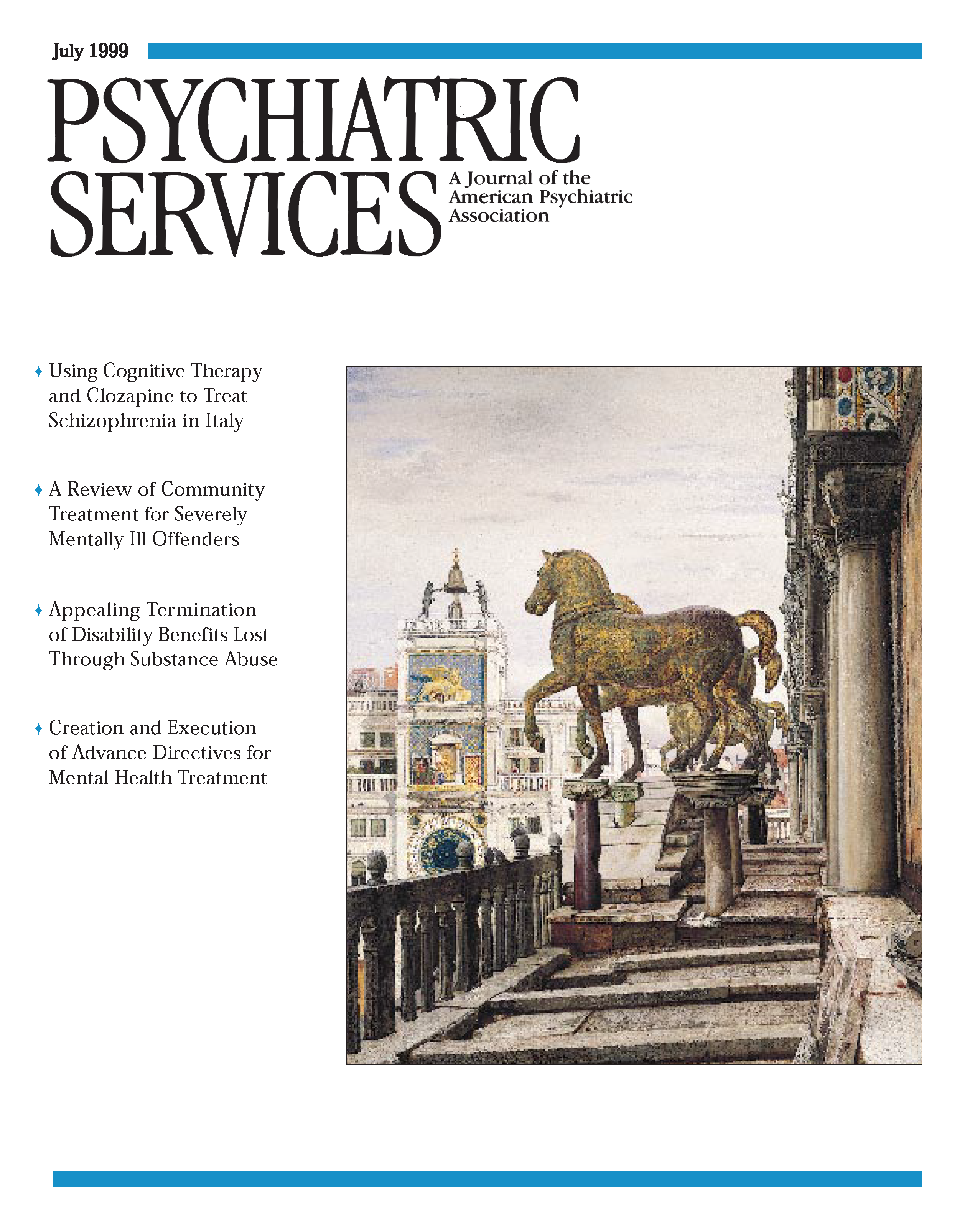To the Editor: Many people regard Australian John Cade's discovery of the use of lithium in psychiatry as one of the major advances in the history of pharmacotherapy. This year marks the 50th anniversary of the publication of Cade's landmark paper (
1). It seems appropriate, and of interest to readers, to recall some of the details of Cade's discovery, as well as to say a little about the man himself.
Believing that mania might be caused by intoxication by normal body products, Cade's experiments led him to focus on lithium urate. He observed that guinea pigs became very lethargic on the compound, and he subsequently conducted a clinical trial of lithium with ten manic patients. More than 20 years later, Cade (
2) reflected, "It [seems] a long way from lethargy in guinea pigs to the control of manic excitement." Nevertheless, Cade traversed the distance with astonishing effect.
The first of the initial cohort of ten manic patients was described as "a little wizened man of 51 who had been in a state of chronic manic excitement for five years . . . amiably restless, dirty, destructive, mischievous, and interfering" (
1,
2). The patient "enjoyed preeminent nuisance value in a back ward . . . and bid to remain there for the rest of his life." Lithium treatment began on March 29, 1948. On April 1, Cade thought he saw signs of improvement but conceded it could have been his "expectant imagination." Cade suggested that the nursing staff were "noncommittal but loyal." However, by the next day the patient was clearly "more settled, tidier, less disinhibited, and less distractible." The patient continued to improve and subsequently returned to his old job. Cade described the results with the other nine manic patients as "equally gratifying."
Cade served as president of the Australian and New Zealand College of Psychiatrists in 1969-1970. In 1970, the same year that lithium was approved for marketing in the United States, Cade was made a distinguished fellow of the American Psychiatric Association. In 1985 it was estimated that Cade's discovery had saved the world at least $17.5 billion (
3).
Cade was a self-effacing man. Speculating about why lithium was not immediately adopted by the psychiatric profession, Cade stated that a discovery "made by a [then] unknown psychiatrist with no research training, working in a small chronic hospital with primitive techniques and negligible equipment, was not likely to command attention" (
2).
It is important not to let this anniversary pass unnoticed.
Editor's note: Dr. Cade's discovery of lithium in Australia 50 years ago preceded by only a year the founding of this journal by the American Psychiatric Association's first medical director, Daniel Blain, M.D. We'll observe our 50th anniversary with a year-long celebration beginning in January 2000. In addition to our regular content, we're planning a series of articles on major developments in the mental health field since 1950. More details will follow later this year.

